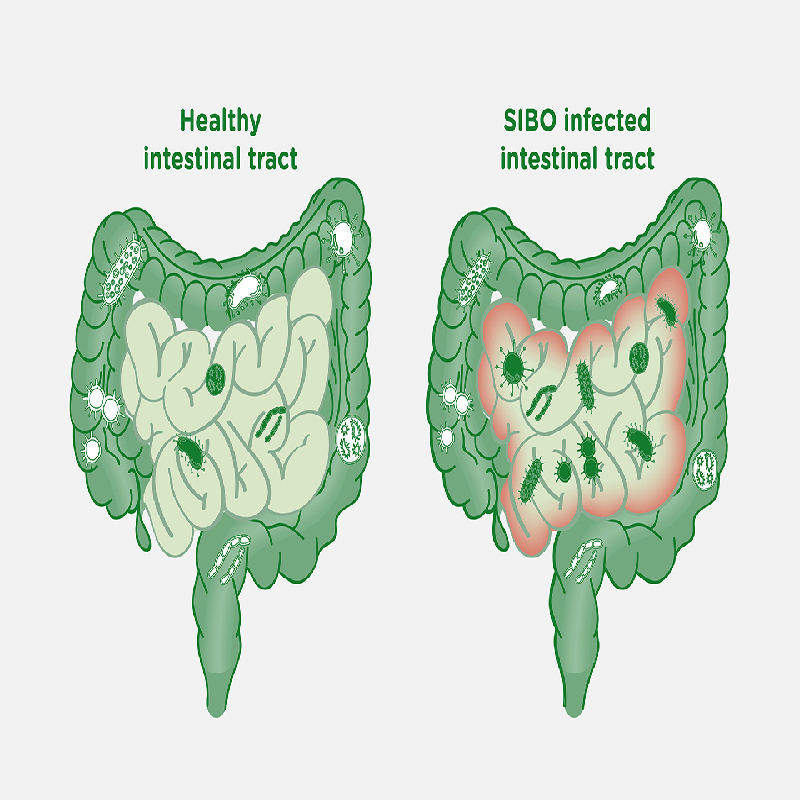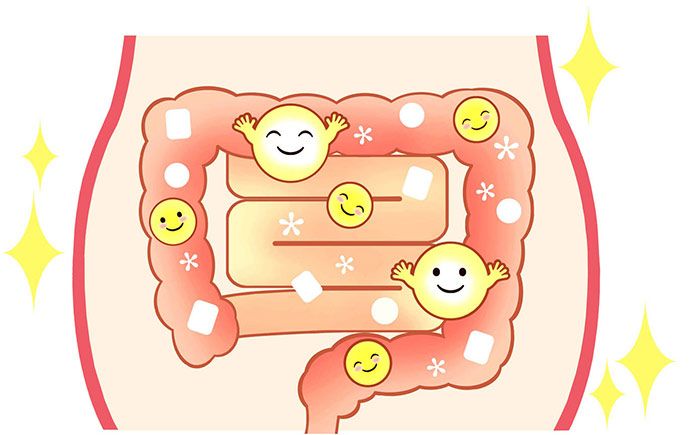
Did you know that the small intestine is longer than the large intestine? But it is called the small intestine because it is less broad than the large intestine. The small intestine plays a vital role in maintaining our overall health. It breaks food down and absorbs nutrients.
Small intestinal bacterial overgrowth (SIBO) is a severe illness affecting the small intestine. It happens when the number of bacteria in the small intestine increases. These bacteria may exist in small numbers and be released regularly from other stomach regions. The result is acute discomfort and diarrhea. As the bacteria begin to deplete the body's resources, it can also result in malnutrition.
Functional medicine believes SIBO is treatable, and lifestyle adjustments may be very efficient in treating it.
SIBO Symptoms
Some of the symptoms of bacterial overgrowth include:
- Gas
- Bloating
- Abdominal pain
- Diarrhea
- Loss of appetite
- Nutritional deficiency, especially Vitamin B12
- Unexpected weight loss
- Sweet or starchy foods usually trigger the worst symptoms

What might Cause SIBO?
If you have suffered from any of these symptoms, read along to discover what may be causing them. Bacterial overgrowth may result from the following:
- Low Motility: The term motility means movement in simple terms. The small intestine lies coiled like a rope and needs to contract well so that undigested or waste food may move to the large intestine. But when the small intestine isn’t able to acquire properly (low motility), the food items or waste may remain inside, and excessive bacteria may grow there, causing SIBO. Think of how mosquitoes breed in large numbers in stagnant water; bacteria grow on inactive, non-moving food.
- Hypochlorhydria: This term means low levels of stomach acid. When someone does not have sufficient stomach acid, it may be possible for bacteria to migrate further up the digestive tract than usual, as the environment is not acidic enough to kill them. In addition, researchers believe that people who take proton pump inhibitors (PPIs are medicines that reduce acid production) may also suffer from SIBO. Plus, people who suffer from autoimmune gastritis or have undergone gastric surgery are at greater risk for SIBO.
- Structure and Shape: Different people might have different types of digestive system structures. Some people's digestive structures might be more prone to SIBO. A few examples are diverticulosis of the small intestine (a condition in which bulging sacs are created on the wall of the small intestine), fistulas (an abnormal opening in the stomach or intestines), and a shorter colon.
- Abuse of Alcohol: Drinking too much alcohol can harm the microbiome, causing dysbiosis (imbalance), damage to the gut walls, and inflammation.
Additional potential reasons include inadequate dietary fiber, stress, immune malfunction, a lack of pancreatic enzymes, and some drugs like steroids, antibiotics, and birth control pills.
How does Functional Medicine Approach SIBO?
Many people with SIBO find it difficult to recover from their condition due to medication that only partially addresses the bacterial imbalance/growth.
Functional medicine, with its highly personalized and integrated approach, has shown excellent results with SIBO patients so far.
The functional medicine approach includes treatment of the underlying disease, provides nutritional support, and addresses relief to all five factors (see next para) integral to a healthy microbiome.
Your body won't be able to maintain a healthy microbiome if one of these five systems —stomach, liver, immune system, intestinal flora, and neurological system— is seriously compromised. If these organs don't work properly, it doesn't matter how much medication you use to fight 'bad bacteria'.
To maintain a healthy microbiome, functional medicine first accurately examines the performance of the organs/systems mentioned above. It then helps you make relevant changes in your lifestyle accordingly.

A Glimpse of the Dietary Changes to be made to Treat SIBO
For SIBO, nutritional changes may include:
- Checking Your Food Sensitivities: Avoid foods that worsen your symptoms and wait three days before reintroducing them to your diet. You can then determine whether a specific food causes your symptoms or not.
- Avoiding Certain Medicines: You may need to stop taking medicines like cough syrup that use sugar alcohols as flavoring, and fiber supplements.
- Avoiding Dairy: You might be unable to digest lactose, the sugar found in milk products if your small intestine is compromised.
- Consuming a Low FODMAP Diet: FODMAPs are kinds of carbohydrates that are not digested easily by the small intestine. The FODMAPs stands for 'Fermentable Oligosaccharides, Disaccharides, Monosaccharides, and Polyols'. Saccharide or saccharine means sugar. Bacteria mainly thrive on carbohydrates, so it is necessary to reduce the intake of foods that contain sugar and carbohydrates.
- Going for a Diet That Meets Your Nutritional Needs: The eating regimen substitutes specific nutritious formulations for familiar foods like glucose (an easily digested carbohydrate), vitamins (fat and water soluble), and a small amount of fat. These things meet your body's nutritional needs in a healthy way.
- Consuming Probiotics As Well As Prebiotics: Fermented foods like yogurt (look for 'live, active organisms' on the label), kefir (a drink made from yogurt), and kimchi (a traditional Korean relish) all contain probiotics. Include lots of fruits, vegetables, and whole grains in your diet to increase your intake of prebiotics.
Do eat:
- Eggs and meat
- Not all cheese but only brie, Camembert, cheddar, and feta cheese
- Almond milk
- Grains like rice, quinoa, and oats
- Vegetables like zucchini, cucumber, tomatoes, potatoes eggplant (white brinjals, only they are called eggplants; the purple brinjals are called aubergines because of their color)
- Fruits like strawberries, pineapple, grapes, oranges, and blueberries.

Conclusion
Bacterial overgrowth can exist in our intestines for a very long time without exhibiting any symptoms. Gas, constipation, bloating, stomach pain, and diarrhea are some common symptoms of SIBO. Following a low-carb diet could resolve this problem. Some people feel at ease when they follow a specific carbohydrate-based diet. A functional medicine expert may advise you to add vitamin B12, magnesium, calcium, iron, zinc, and copper to your diet in addition to vitamins A, D, E, and K, as you may have vitamin deficiencies. Get ready to beat SIBO to the ground.


.png)


